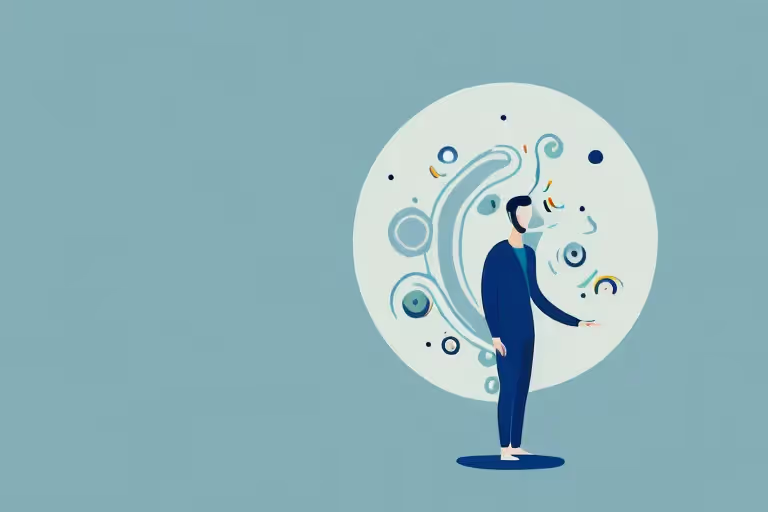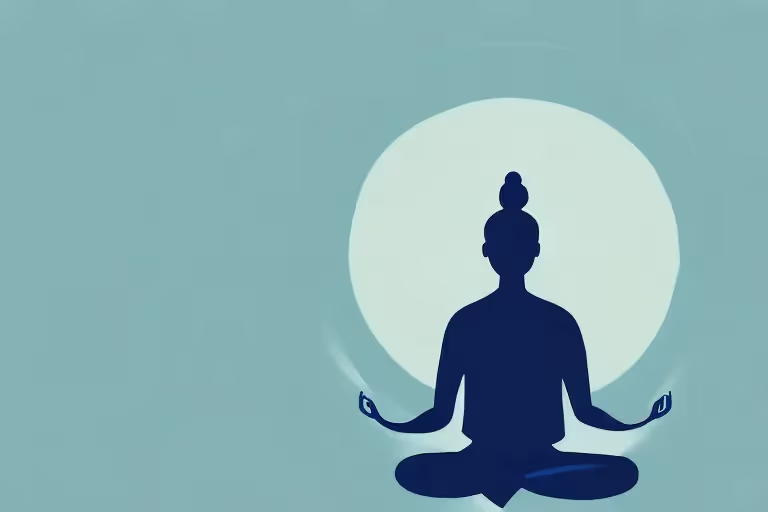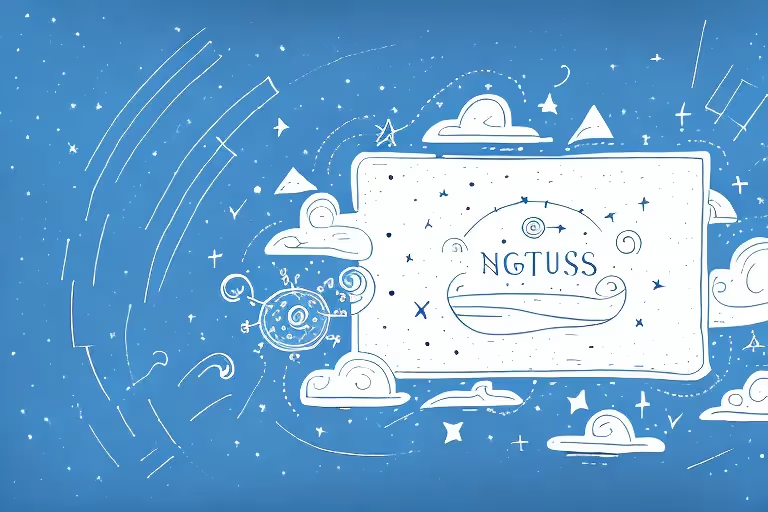Meditation has been practiced for centuries as a way to calm the mind, reduce stress, and promote overall well-being. But did you know that your brainwaves play a significant role in the effectiveness of your meditation practice? Understanding and harnessing the power of brainwave states can take your meditation practice to new heights. In this article, we will explore the optimal brainwave states for effective meditation and how you can achieve them.
Understanding Brainwave States
Before we delve into the specifics of brainwave states during meditation, let's first understand what brainwaves are. Brainwaves are electrical patterns that occur in the brain and can be measured with an electroencephalogram (EEG). These patterns vary in frequency and amplitude, and each brainwave state is associated with different mental states and activities.
The five main types of brainwave states are:
- Delta waves (0.5 to 4 Hz)
- Theta waves (4 to 8 Hz)
- Alpha waves (8 to 13 Hz)
- Beta waves (13 to 30 Hz)
- Gamma waves (30 to 100 Hz)
The Science Behind Brainwaves
Brainwaves are generated by the electrical activity of billions of neurons in our brains. The frequency of brainwaves is measured in Hertz (Hz), and each frequency range is associated with a specific mental state or activity. Understanding the science behind brainwaves can help us optimize our meditation practice.
When we meditate, our brainwaves shift into different states depending on the depth of our meditation and the level of relaxation we achieve. By understanding the different brainwave states, we can intentionally guide our brainwaves to enhance our meditation experience.
Different Types of Brainwaves
There are five main types of brainwaves:
- Delta waves (0.5 to 4 Hz) are associated with deep sleep and unconsciousness. When we experience delta waves during meditation, it indicates a deep state of relaxation and a connection to our subconscious mind. This state allows for profound healing and rejuvenation.
- Theta waves (4 to 8 Hz) occur during deep meditation, creativity, and deep relaxation. Theta waves are associated with a dream-like state and are often experienced during moments of inspiration and insight. This brainwave state allows us to access our intuition and tap into our subconscious mind.
- Alpha waves (8 to 13 Hz) promote calmness, relaxation, and a light meditative state. When we experience alpha waves, our mind is in a state of relaxation and alertness. This brainwave state is ideal for practicing mindfulness and achieving a sense of inner peace.
- Beta waves (13 to 30 Hz) are associated with alertness, focus, and problem-solving. When we are engaged in active thinking, problem-solving, or focused tasks, our brain produces beta waves. While beta waves are not typically experienced during deep meditation, they can be beneficial for enhancing concentration and mental clarity.
- Gamma waves (30 to 100 Hz) are involved in higher-level cognitive processes and heightened states of consciousness. This brainwave state is associated with moments of insight, expanded awareness, and peak performance. Gamma waves are often experienced by advanced meditators and individuals with deep spiritual practices.
Each brainwave state has its own unique benefits and can be utilized during different stages of meditation. By understanding and harnessing the power of brainwaves, we can deepen our meditation practice and unlock the full potential of our minds.
The Connection Between Brainwaves and Meditation
Now that we've explored brainwave states, let's dive into how meditation can affect your brainwaves and vice versa.
But before we delve into the connection between brainwaves and meditation, let's take a moment to understand what brainwaves are. Brainwaves are the electrical impulses generated by the billions of neurons in our brain. These electrical signals can be measured and categorized into different frequencies, each associated with a specific mental state.
How Meditation Affects Your Brainwaves
Meditation has been shown to alter brainwave activity and induce desirable states for relaxation and awareness. Research has revealed that regular meditation practice can increase the duration and intensity of certain brainwave states, such as alpha and theta waves.
Alpha waves, which have a frequency range of 8 to 12 Hz, are associated with a relaxed and calm state of mind. When you meditate, your brain produces more alpha waves, leading to a sense of tranquility and inner peace. This state is often accompanied by a decrease in stress and anxiety levels.
Theta waves, on the other hand, have a frequency range of 4 to 8 Hz and are linked to deep relaxation and heightened creativity. During meditation, as you enter a deep meditative state, your brainwave pattern shifts from the fast-paced beta waves to the slower theta waves. This shift allows for a deeper sense of relaxation, increased creativity, and enhanced access to your subconscious mind.
The Role of Brainwaves in Deep Meditation
Deep meditation is associated with theta brainwave activity. When you enter a deep meditative state, your brainwave pattern shifts from the fast-paced beta waves to the slower theta waves. This shift allows for a deeper sense of relaxation, increased creativity, and enhanced access to your subconscious mind.
During deep meditation, theta waves dominate the brainwave activity. This state is often described as a state of deep tranquility, where the mind is calm and focused. It is in this state that profound insights and spiritual experiences can occur.
Furthermore, theta waves are also associated with increased synchronization between different regions of the brain. This synchronization allows for improved cognitive functioning, enhanced memory, and increased learning abilities.
It is worth noting that the connection between brainwaves and meditation is not limited to alpha and theta waves. Other brainwave frequencies, such as beta and gamma waves, also play a role in different aspects of meditation. Beta waves, for example, are associated with active thinking and concentration, while gamma waves are linked to heightened perception and consciousness.
In conclusion, meditation has a profound effect on our brainwaves, altering their frequency and intensity. By practicing meditation regularly, we can cultivate desirable brainwave states that promote relaxation, awareness, and personal growth. The connection between brainwaves and meditation is a fascinating area of study, with ongoing research shedding light on the intricate relationship between our mind and our brain.
Achieving Optimal Brainwave States
Now that we understand the connection between brainwaves and meditation, let's explore some techniques for influencing and optimizing our brainwave states during meditation.
Techniques for Influencing Brainwave States
There are several techniques that can help you achieve optimal brainwave states during meditation:
- Breathing exercises: Deep, slow breathing can lower your brainwave frequency and promote relaxation.
- Mantra repetition: Repeating a mantra during meditation can help synchronize your brainwaves and induce a deep meditative state.
- Guided imagery: Guided imagery meditation can stimulate specific brainwave patterns associated with relaxation and creativity.
- Binaural beats: Listening to binaural beats, which are different frequencies played in each ear, can help entrain your brainwaves to desired states.
The Role of Mindfulness in Brainwave Optimization
Practicing mindfulness during meditation can also contribute to brainwave optimization. By being fully present in the moment and observing your thoughts and sensations without judgment, you can cultivate a state of focused awareness and enhance your brainwave activity.
Benefits of Optimal Brainwave States in Meditation
Now that we've explored how to achieve optimal brainwave states, let's discover the benefits they offer in meditation.
Enhanced Focus and Concentration
Optimal brainwave states, such as alpha and theta waves, have been linked to improved focus and concentration. When your brainwaves are in these states, you can experience heightened attention, cognitive function, and problem-solving abilities during meditation.
Improved Emotional Well-being
Brainwave states like theta waves are associated with emotional relaxation and increased self-awareness. Engaging with these states during meditation can help reduce stress, anxiety, and negative emotions while fostering a sense of inner peace and emotional well-being.
Common Misconceptions About Brainwaves and Meditation
Despite the growing scientific understanding of brainwaves and meditation, there are still some misconceptions that persist.
Debunking Myths About Brainwave States
One common myth is that certain brainwave states are superior to others. In reality, each brainwave state has its own unique benefits and plays a valuable role in different aspects of our lives. Embracing the diversity of brainwave states can enhance our overall well-being.
The Truth About Meditation and Brainwaves
Although brainwave entrainment techniques like binaural beats can help facilitate specific brainwave states during meditation, it's important to remember that meditation itself is a practice of being present and cultivating a focused mind. Brainwave optimization is just one aspect of the profound benefits meditation has to offer.
By understanding the optimal brainwave states for effective meditation and implementing techniques to achieve them, you can enhance your meditation practice and experience a deeper connection with yourself and the present moment. So, why not give it a try with the Aura Health App and start unlocking the full potential of your meditation practice today?
Aura is Your All In One App for Meditation, Mindfulness Wellbeing
Find peace every day with one app for your whole well-being. There is no one-size-fits-all solution to mental well-being. Aura is the first all-in-one wellness app that learns how to best help you. Discover an endless library of expert-created tracks for your well-being, all taught by the world’s best coaches, therapists, and storytellers. With Aura's personalized recommendations, you can find peace every morning, day and night.



.webp)






.avif)

%20(1).avif)


.avif)
.avif)
.webp)


.avif)


















































































































.avif)

















.svg)









